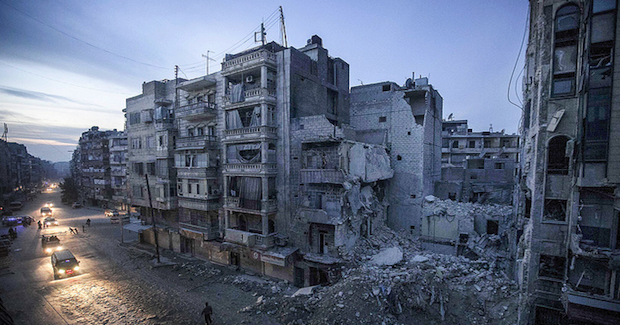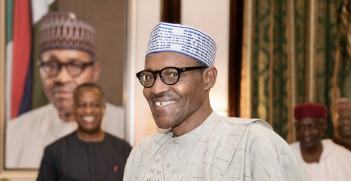After Aleppo

The rebel-held eastern third of Aleppo has finally fallen to Syrian government forces. This brings to an end one of the most grotesque phases of the Syrian conflict, marked by massive bombardment by Russian and Syrian forces and the cynical and ineffective support of the United States and its allies for the opposition.
The end of fighting will bring relief to hundreds of thousands of civilians in all parts of the city and is to be welcomed on that basis. Hopefully, aid that the United Nations and other organisations have been trying to deliver will now be allowed to reach those in need.
The battle for Aleppo represents a failure of diplomacy and compromise and the triumph of brute force. Despite efforts by US Secretary of State John Kerry and UN negotiator Steffan De Mistura, two of the few to emerge from this episode with any credit, the Syrian government’s insistence on military victory has driven the brutality of the past few months. It is from this uncompromising and ruthless approach, based in hubris and fear, that many of the challenges of the future will emerge.
Aleppo’s fall does not mean the end of the war. Opposition fighters have suffered a significant strategic loss but they have not been destroyed and continue to declare defiance. They will probably regroup around Idlib, a town south-west of Aleppo and the last major focus of resistance. From there, the opposition may launch attacks on government-controlled areas.
The role of the Kurds has not received much attention during the battle. Kurdish militia, the Kurdish Protection Units (YPG), have enjoyed a partnership of convenience with the government in the recapture of Aleppo and have seized a significant area in the city’s north. While the government has been happy to receive Kurdish help, it is opposed to ideas of special status that the Kurds may have for themselves. It may only be a matter of time before this relationship descends into violence.
The success of the YPG in Aleppo and against IS has been welcomed by the US but not by its ally, President Erdogan of Turkey, who wants a role in the Syrian war. To this end, he has even made territorial claims to Aleppo (and Mosul). The fall of the city has under-cut Erdogan’s strategy but he may persist with his pursuit of a role.
Islamic State (IS) occupies large swathes of Syria, much of which is sparsely populated. It has not been a major player in the Aleppo tragedy but has taken advantage of the regime’s preoccupation with Aleppo to recover territory lost earlier in the year with the recapture of Palmyra. This has exposed the weakness of the Syrian military and may lead the government to decide it lacks the capacity to regain Raqqa and concentrate on consolidating control of the rest of the country.
Developments in Iraq are relevant in this context. Raqqa is the main stronghold for IS and other extremist groups in Syria. If the Iraqi government fails to conciliate its Sunni population, the violence of the past few years may resume. With the impending fall of Mosul, Raqqa may become an integral part of the same struggle.
Perhaps the greatest challenge is reconciliation, which is complicated by the multiplicity of groups on both sides, the lack of opposition leadership and the traumatic memories for all involved of the past few years. Many civilians refused to leave eastern Aleppo because they feared the regime and its allies. It remains to be seen if these fears are warranted and the government is intent on revenge and on punishing the ‘terrorists’. Early signs are not good with the UN High Commissioner for Human Rights, Zeid Ra’ad Al-Hussein, expressing concern about the killing of civilians by pro-regime militias. Reports of summary killings may reflect government policy or lack of government control of its forces.
So we are left with a victorious, vengeful but exhausted government in control of most of Syria’s population and a fragmented and increasingly fanatical opposition, neither of which understands the concepts of compromise and reconciliation. However, moderate regime elements will be aware of the debt the government owes Russia, Iran and Shia militias from Lebanon, Iraq and Afghanistan. Russia and Iran have their limits. Iran has suffered significant losses in the war and began to limit their direct involvement months ago. Having helped Assad recapture Aleppo, his two allies may support action against Idlib, but they recognise the ongoing nature of the war and will be looking to pursue a political solution.
A wild card is the incoming US administration. Trump indicated he will focus on fighting Islamic State and cease support for Syrian proxies. However, congress has voted to allow him to provide more lethal weaponry to opposition groups. We can expect a further decline in US influence in the conflict, regardless of Trump’s approach. The nominee for secretary of state, Rex Tillerson, is unlikely to commit the same time and political capital as John Kerry on a political solution.
While the fall of Aleppo does not end the war, it may lead to a lower level of violence in Syria. This may enable rebuilding of the city and the country more broadly to commence. Finding the means and finance for this massive undertaking, however, will test the commitment of the international community as well as the Syrian government and its allies.
The US and Western-dominated organisations like the IMF and World Bank may baulk at propping up Bashar Al-Assad and persist with sanctions against the Syrian people. Europe needs peace in Syria so that refugees can go home. This is a sentiment shared by Lebanon, Jordan and, to a point, Turkey, which have borne the brunt of the refugee crisis.
Russia and the Syrian government bear responsibility for the horrendous suffering of the people of Aleppo but we all must share some of the guilt, through indifference and disregard for the human rights of people far away. Whether we like the government or not, the world must respond to the plight of the population, even if that means dealing with Assad.
It is too late for Aleppo but we could pressure the UN Security Council to take its responsibilities seriously and cooperate to help Syria out of its nightmare. This would require Council members to put the interests of the people ahead of their strategic rivalries. They might be reminded of the first lines of the United Nations Charter:
We the peoples of the United Nations determined:
to save succeeding generations from the scourge of war, which twice in our lifetime has brought untold sorrow to mankind, and
to reaffirm faith in fundamental human rights, in the dignity and worth of the human person, in the equal rights of men and women and of nations large and small
These noble ideas have been lost in the Syrian war.
Dr Anthony Billingsley is a senior lecturer of international relations at UNSW Australia. Anthony’s main research focus is the Middle East and international law. This article is published under a Creative Commons Licence and may be republished with attribution.





